The Parkari Literacy Project (PLP) is one of the core activities of PCDP. The PLP is a community based literacy development project which provides education for Parkari children living in isolated villages
The PLP has the following aims:
Education Awareness Project
To promote awareness about the importance of education
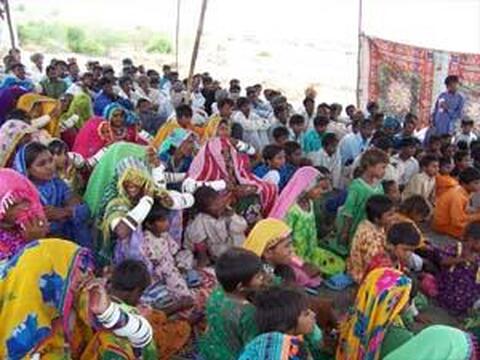
Through this project, education awareness sessions are conducted in targeted villages, and schools are established in needy areas. PLP promotes capacity building for members in the separate male and female Village Committees by providing training in the management of schools. Thus, men and women in the community can co-operate with each other in the smooth running of their community-based schools, and in other development activities.
Multi-lingual Education for Parkari Children
To use only mother tongue in the early stages of education
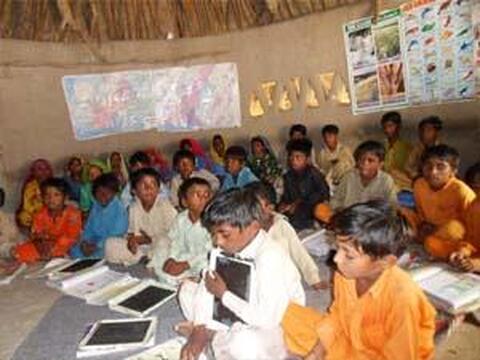
PLP uses Parkari, the mother tongue of the community, as the first language of education. This is highly respected at the local level. The main purpose of PLP’s Multi-lingual Education project is to teach using only people’s own mother tongue for the first 18 months in order to increase literacy among the community. Currently literacy in the Parkari community is barely 5%, compared to the national rate of 55%. One of the basic principles used in PLP is the importance of beginning education in mother tongue. Children learn best in their mother tongue because they are fluent in it, which provides a safe and secure atmosphere when children first attend school. Mother tongue instruction also helps children to acquire basic concepts at grass root level. Use of mother tongue also gives children the best opportunity for self-expression, as it is several years before children can express their thoughts and ideas freely in a second language. The PLP pattern is to build a firm foundation of reading and writing in mother tongue, which then enables children to transfer these mother tongue literacy skills to Sindhi, Urdu and English at later stages in their education. Studies have shown that when minority children have the opportunity to begin their academic work using their first language, they are academically more successful later on in education in other languages when compared with those who began their education in only their second language. PLP is proving very popular at both government and local level, because of the success of Parkari children exhibit when have begun their initial education in their mother tongue. PLP therefore provides the Parkari community schools with locally written Parkari books and other educational materials, and locally produced cassettes. All these materials are in Parkari, and include culturally appropriate books for use in schools, information and charts for running workshops, teacher training materials and health materials.
For PLP trained school teachers to use the “Multi-strategy Method”
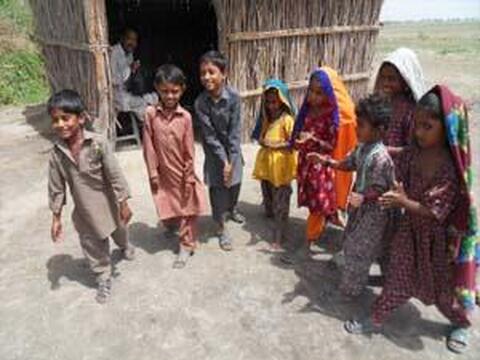
This means using two distinct ways to teach the children to read and write. The Workbook Track teaches children to become accurate and methodical readers, writers, thinkers, and problem solvers. The Storybook Track includes writing with fluency, comprehension using thematic story books, and writing about shared experiences. These activities teach children to become confident and creative readers, writers, thinkers, and problem solvers.
For PLP to run Teacher Training Workshops
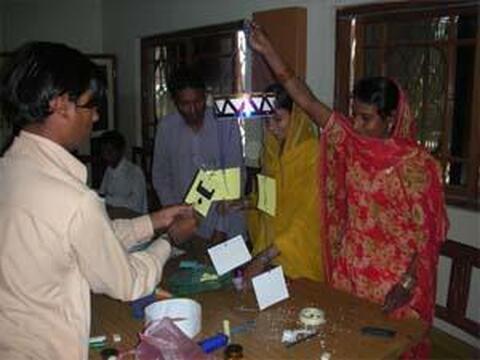
for village teachers and their assistants. These workshops provide targeted training which prepares teachers to teach the initial Basic Education syllabus in mother tongue, and later on, the multi-lingual Primary Education syllabus.
Adult Education
To provide rights-based education for adults
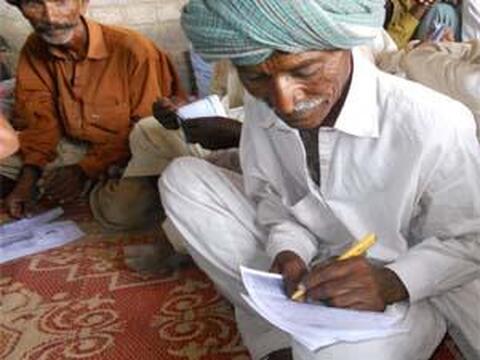
PLP provides training for adult education teachers so they can run Adult Education centres. Adult Education means that people are able to check their accounts with landlords, thus avoiding any false entries being entered in their names. It not only builds the capacity of illiterate adults in reading and writing skills, but also fosters an awareness about how important education is for their children, including girls. Adult education in their mother tongue, especially the Rights-based course which looks at civil & political rights, is highly appreciated by Parkari adults. Th is is shown by how in 2009, PCDP had only planned to establish 7 Adult Education centres. But in 2010, 7 centres were found to not be nearly enough, because there were applications for help with setting up 30 centres. To meet this growing need, PCDP offered to provide teacher training, information books etc., but only if the Adult Education centres were then set up and run by the communities themselves.
Community Self-Help School Project
To establish self-help schools
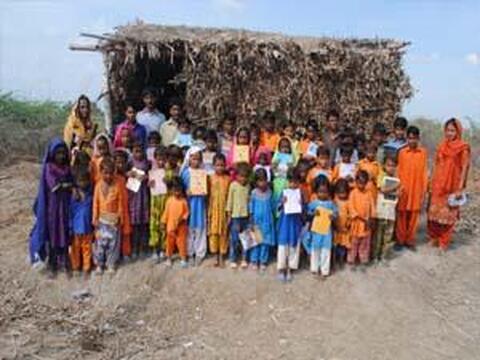
To achieve this, PCDP provides teacher training, basic school equipment, educational books in Parkari for the initial education in mother tongue, and salaries for teachers, for only the first two years. After this period is completed, each community is then responsible for running and funding the schools themselves.
Secondary Education
To provide transition from primary to middle school
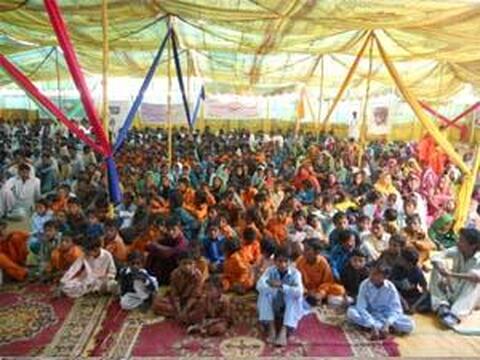
After education in the multi-lingual Primary Schools, Parkari children receive their middle school education in Parkari-run schools. PCDP trains the middle school teachers and the schools are equipped with appropriate materials, equipment and facilities. If funding becomes available, it is hoped that PCDP will be able to establish Parkari-run secondary schools, especially in the Desert area.
]]]]> /*-->*/